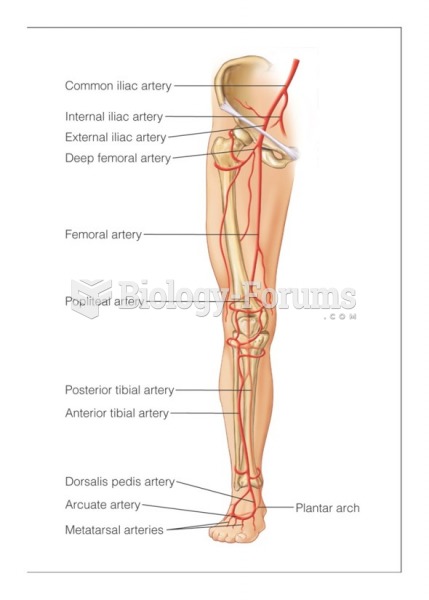|
|
|
The average human gut is home to perhaps 500 to 1,000 different species of bacteria.
When blood is exposed to air, it clots. Heparin allows the blood to come in direct contact with air without clotting.
For pediatric patients, intravenous fluids are the most commonly cited products involved in medication errors that are reported to the USP.
Astigmatism is the most common vision problem. It may accompany nearsightedness or farsightedness. It is usually caused by an irregularly shaped cornea, but sometimes it is the result of an irregularly shaped lens. Either type can be corrected by eyeglasses, contact lenses, or refractive surgery.
Aspirin may benefit 11 different cancers, including those of the colon, pancreas, lungs, prostate, breasts, and leukemia.







